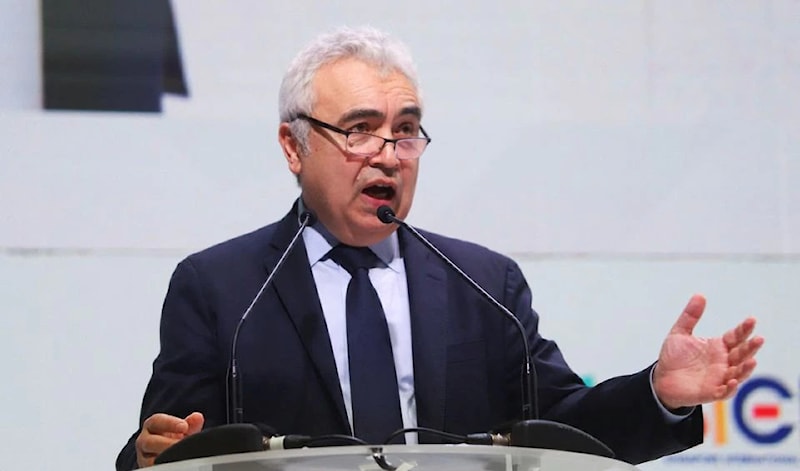World experiencing its first real global energy crisis: IEA chief
IEA Executive Director Fatih Birol believes that tightening markets for liquefied natural gas and decreasing supply have triggered "the first truly global energy crisis."
-

The 15th Singapore International Energy Week, in Singapore, October 25, 2022 (Reuters)
Tightening markets for liquefied natural gas (LNG) around the world, combined with big oil producers lowering supplies, have thrown the world into "the first truly global energy crisis," according to the executive director of the International Energy Agency (IEA) on Tuesday.
Rising LNG imports to Europe as a result of the war in Ukraine, as well as a potential rebound in Chinese demand for the fuel, will tighten the market, as only 20 billion cubic meters of new LNG capacity will enter the market next year, according to IEA Executive Director Fatih Birol at the Singapore International Energy Week.
At the same time, the recent decision by the Organization of Petroleum Exporting Countries (OPEC) and its allies, known as OPEC+, to cut 2 million barrels per day (BPD) of output is a "risky" decision, according to Birol, because the IEA forecasts global oil demand growth of close to 2 million BPD this year.
"(It is) especially risky as several economies around the world are on the brink of a recession, if that we are talking about the global recession...I found this decision really unfortunate," he said.
However, Birol believes that the current energy crisis might be a watershed moment in energy history, advancing clean energy sources and establishing a sustainable and secure energy system.
“Energy security is the number one driver (of the energy transition),” said Birol, as countries see energy technologies and renewables as a solution
Moreover, the US was concerned that OPEC's probable decision to reduce oil production will pose serious problems for the country and may even be interpreted as a hostile act, according to a US Treasury report.
The Biden administration assembled its top energy, economic, and foreign policy officials and entrusted them with lobbying Middle East allies such as Saudi Arabia, the United Arab Emirates, and Kuwait to vote against decreasing oil production.
To persuade its OPEC allies, the US proposed to purchase back up to 200 million barrels of oil from its OPEC partners.
In response, Saudi Arabia rejected statements criticizing it after an OPEC+ decision to cut its oil production target despite US objections.
In a statement, the Saudi Foreign Ministry cited one of its officials as saying "that the government of the Kingdom of Saudi Arabia has viewed the statements issued about the Kingdom following the OPEC+ decision announced on October 5- 2012, which have described the decision as the Kingdom taking sides in international conflicts and that it was politically motived against the United States of America."
The Saudi official expressed the Saudi government's "total rejection of these statements that are not based on facts, and which are based on portraying the OPEC+ decision out of its purely economic context."

 3 Min Read
3 Min Read










